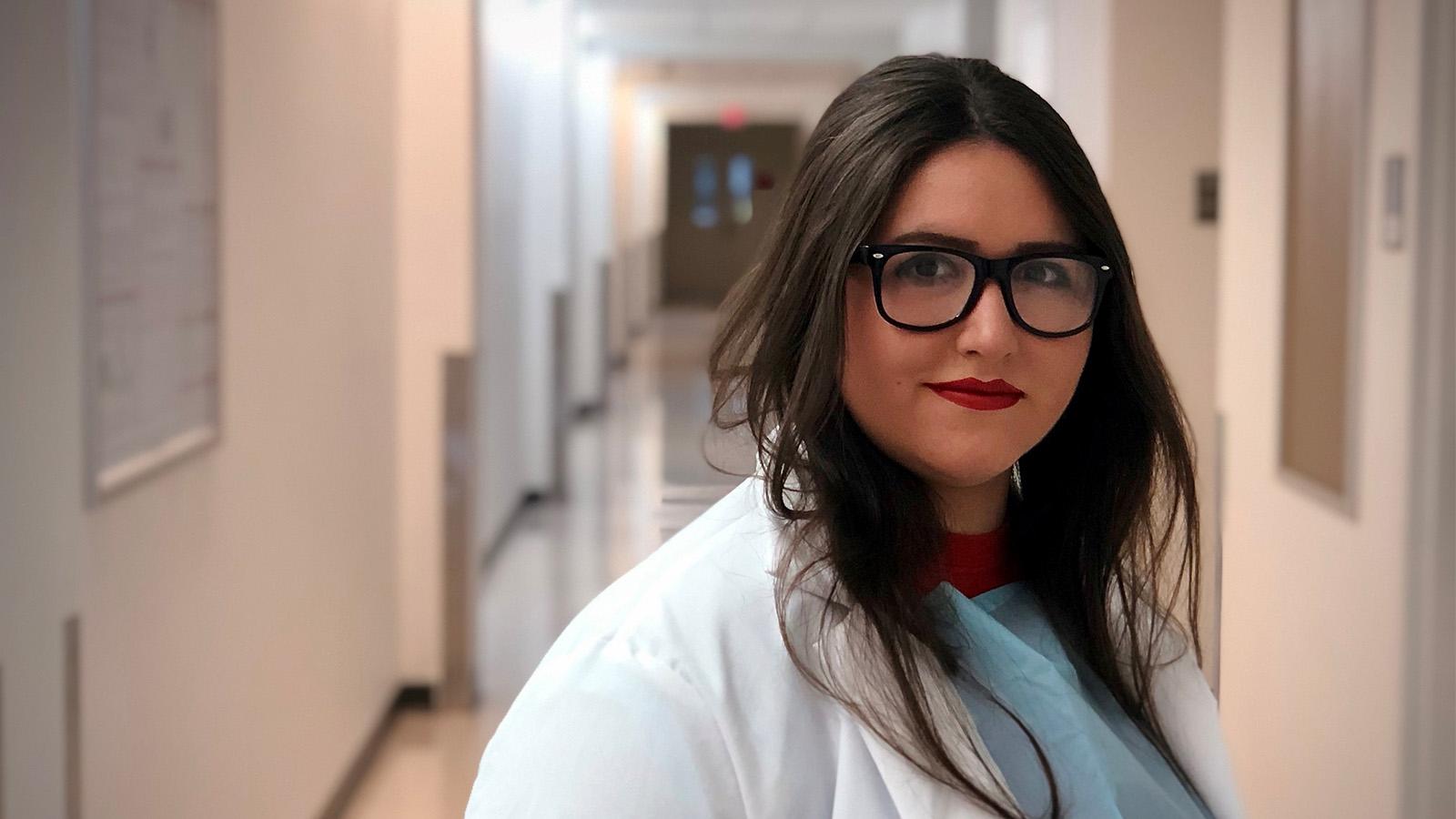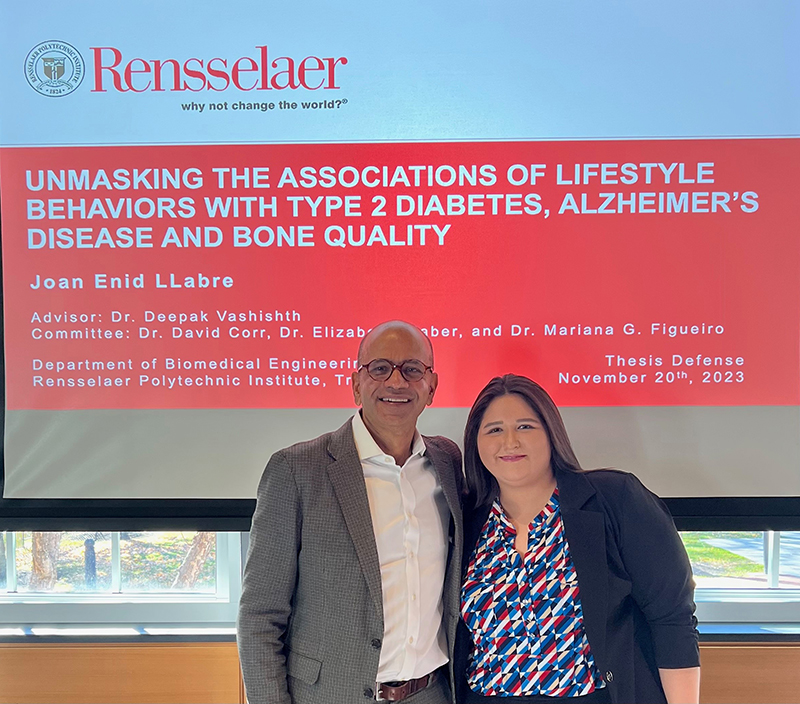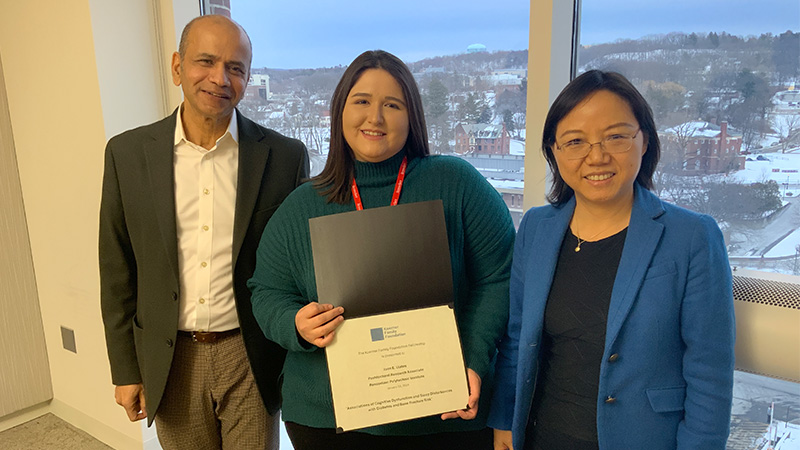February 8, 2024

Joan Llabre, Ph.D. '23, who received her doctorate in biomedical engineering from Rensselaer Polytechnic Institute this past fall and is now a postdoctoral researcher at the Institute, has won the Koerner Family Foundation Fellowship, which supports engineers pursuing careers in research.
“My goal is to be an academic researcher working on translational and clinical research. This fellowship will help me continue down that path as I develop professionally and expand my network,” Llabre said.
Llabre always wanted to be an engineer, but an illness in her teens almost got in the way of her plans. Fortunately, she was able to keep up on her studies thanks to a devoted mom who made sure she didn’t fall behind.
Today, Llabre says that early experience of seeing how medicine can help people — and what more it could do in the future — influenced the kind of engineer she wanted to be.
“When it came time to apply to college, I knew I wanted to study biomedical engineering,” Llabre said, but at the time there were no programs like that in Puerto Rico, where she grew up. “My mom, who was always a big advocate for my education, simply said, ‘we will go where you can pursue your degree.’”
Llabre’s dream took her to the University of Harford for her undergraduate education. There she was guided by biomedical engineering faculty members Mary Arico, Ph.D., and Andrea Kwaczala, Ph.D., two RPI graduates who encouraged her to apply to RPI when she was considering graduate school.
At RPI, Llabre did her doctoral work under the direction of Deepak Vashishth, Ph.D., Yamada Corporation Professor in the biomedical engineering department and director of the Shirley Ann Jackson, Ph.D. Center for Biotechnology and Interdisciplinary Studies at RPI.


“Dr. Vashishth has been a tremendous mentor to me and gave me many opportunities to explore my research interests,” Llabre said.
One of those research interests was exploring the link between Alzheimer’s disease and osteoporosis.
“We’ve shown there is a correlation between osteoporosis and Alzheimer’s disease. Now I want to study how they contribute to each other at the biological level. This could help us find ways to diagnosis Alzheimer’s more accurately and help us understand if improving bone health could improve brain health,” Llabre said. “These advances could make a real impact on women’s health, as women are far more likely to be affected by Alzheimer’s disease and osteoporosis.”
Llabre said she is excited to dive into her postdoctoral research in both CBIS and at RPI’s Center for Engineering and Precision Medicine.
“Joan has accomplished a great deal at RPI, and this fellowship is well deserved,” Vashishth said. “The questions she is pursuing about the relationship between bone and the brain have the potential to advance our understanding of diseases like Alzheimer’s and really help people and families affected by this disease. We are all excited to see where her research career will take her and the lives her work will change.”